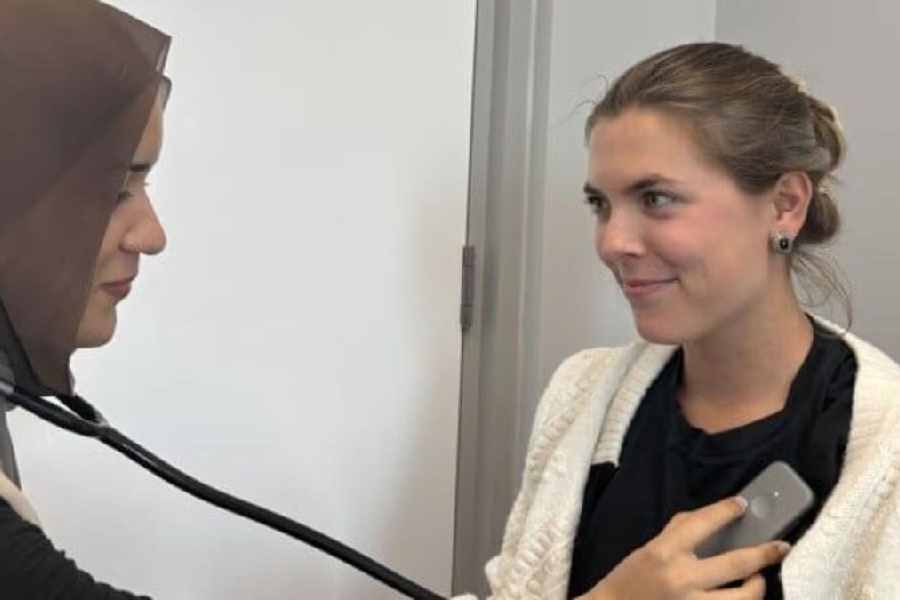The stethoscope, invented more than 200 years ago and an integral part of a doctor’s toolkit, is entering the artificial intelligence generation.
A trial by Imperial College London included over 1.5 million patients who presented with symptoms such as breathlessness or tiredness at 205 general practitioners’ centres.
In 96 of these clinics, over 12,000 patients were tested with the upgraded kit, and patients at the remaining practices were analysed with a traditional stethoscope.
Family doctors trialled the Eko Duo digital stethoscope, manufactured by the Californian company Eko Health. It listens to the heart and records an electrocardiogram (ECG) using an algorithm trained on a database of heart recordings to give a quick diagnosis. Researchers say the technology can spot heart failure, heart valve disease and abnormal heart rhythms almost instantly.
The AI version of the stethoscope replaces the traditional chest piece with a small rectangular device. It uses a microphone to read subtle differences in heartbeat and blood flow that the human ear may not detect.
Patients who were found to be at a high risk of heart failure during the test had their diagnosis confirmed with a blood test for a hormone called BNP and a heart scan.
Those examined with the AI-stethoscope were around 3.5 times more likely to be diagnosed with atrial fibrillation or an abnormal heart rhythm, which can increase the risk of having a stroke. They were also almost twice as likely to receive a diagnosis of heart valve disease.
Dr Sonya Babu-Narayan, a consultant cardiologist and clinical director at the British Heart Foundation, which funded the research, said: “This is an elegant example of how the humble stethoscope, invented more than 200 years ago, can be upgraded for the 21st century.”
Dr Sonya Babu-Narayan added: “We need innovations like these, providing early detection of heart failure, because so often this condition is only diagnosed at an advanced stage when patients attend the hospital as an emergency. Given an earlier diagnosis, people can access the treatment they need to help them live well for longer.”
The researchers pointed out that the AI-stethoscope should be used for patients with symptoms of suspected heart problems, and “not for routine checks in healthy people”.
Dr Patrik Bachtiger, of Imperial College London’s National Heart and Lung Institute and Imperial College Healthcare NHS trust, said: “The design of the stethoscope has been unchanged for 200 years — until now. So it is incredible that a smart stethoscope can be used for a 15-second examination, and then AI can quickly deliver a test result indicating whether someone has heart failure, atrial fibrillation, or heart valve disease.”
The researchers plan to roll out the technology to GP practices in Wales, south London and Sussex.










